Proposal for real estate transactions to be conducted through banks
Delegate Trinh Lam Sinh (An Giang delegation) proposed that the draft law add a provision prohibiting the act of manipulating and disrupting the real estate market, and clearly define the signs of manipulating and disrupting the real estate market. "In the past, manipulative acts have caused instability in the real estate market and affected the socio-economic development of the country," Mr. Sinh stated.
Many deputies have the same proposal. Specialized member of the National Defense and Security Committee Trinh Xuan An (Delegate of Dong Nai) proposed to include the act of manipulating the real estate market in the list of prohibited acts, and clarify the act of manipulating and fixing real estate prices. "Personally, I think that the act of manipulating real estate is no less dangerous than the act of manipulating stocks as stipulated in the Penal Code. Currently, the act of manipulating the real estate market is taking place in a sophisticated manner, leading to a bubble situation, real estate prices are sky-high compared to reality and need to be prohibited by law, with specific regulations to eliminate it," Mr. An suggested.
According to Mr. An, the act of manipulating the real estate market does not only include setting high prices during auctions and then canceling deposits with the purpose of pushing up prices and making profits, but also using one project to "stimulate" the prices of other projects, creating a very high price level. "I think that if it is not thoroughly handled, it will create a bubble and lead to serious incidents," Mr. An emphasized.
Vice Chairman of the National Assembly's Judicial Committee Nguyen Manh Cuong (Quang Binh delegation) expressed concern about the draft law stipulating that the State has a policy to facilitate organizations and individuals to make non-cash payments in real estate transactions. According to Mr. Cuong, non-cash payments are a very important solution in preventing and combating corruption and negativity. Therefore, he suggested that for large transactions such as real estate transactions, the State should move towards requiring non-cash payments instead of just facilitating them.
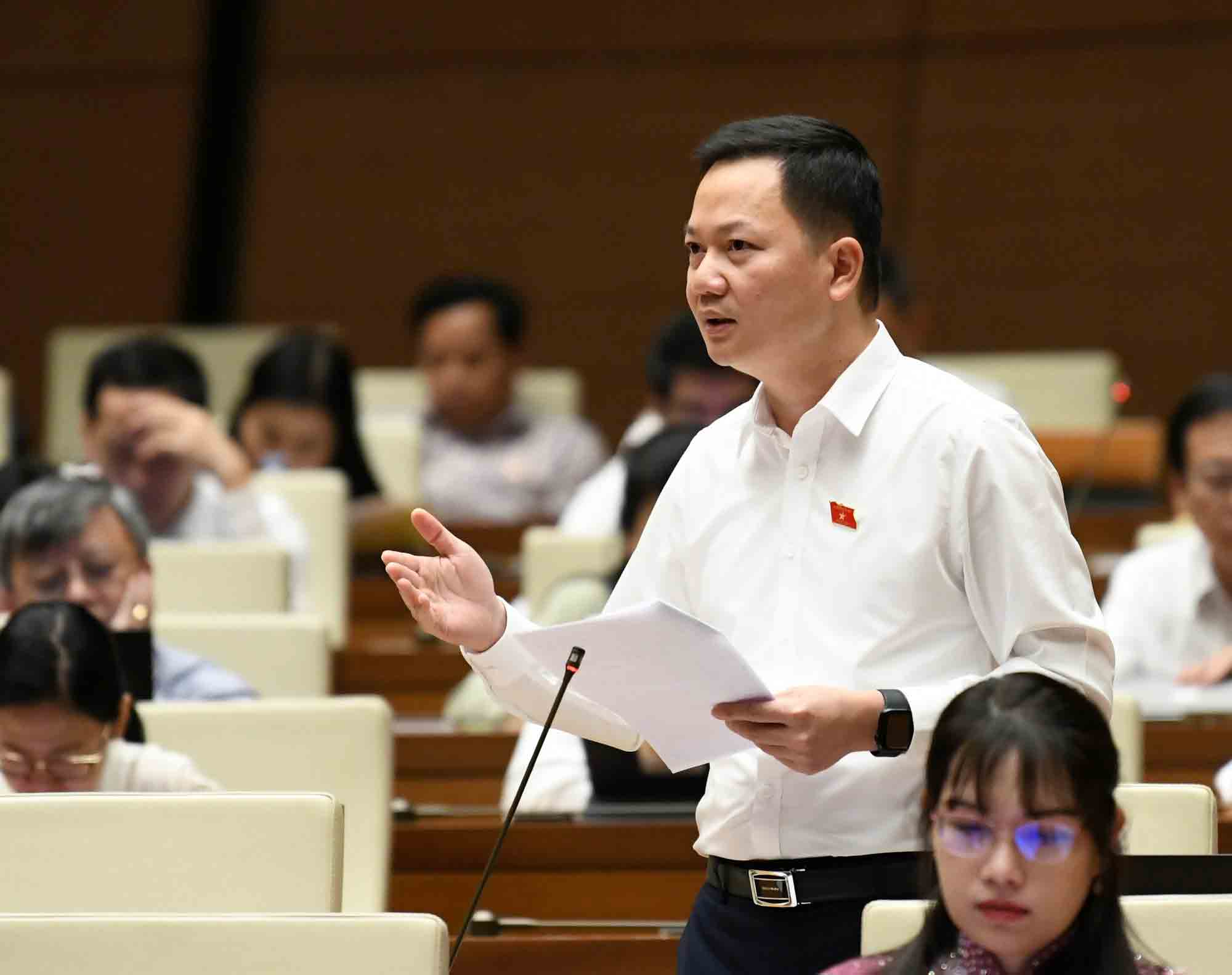
Delegate Trinh Xuan An (Dong Nai delegation)
Delegate Trinh Xuan An expressed his agreement with the regulations on payment in real estate transactions, according to which, project investors and real estate businesses must receive money from customers through bank accounts in Vietnam. "I think that all transactions related to real estate must be paid through banks, not just investors and businesses. We have made a significant step forward in implementing non-cash payment transactions, I suggest we must revolutionize further," Mr. An proposed.
Delegate Trinh Xuan An, full-time member of the National Defense and Security Committee (Dong Nai delegation)
Brokers "toss and catch" disrupt the market
Regarding regulations on real estate trading floors, the report on receiving and revising the previous draft law, Chairman of the Economic Committee Vu Hong Thanh said that accepting the opinions of many National Assembly deputies, the draft law after explanation and acceptance removed the regulation requiring real estate transactions to go through the floor and only encouraged them. "Requiring real estate transactions will lead to the risk of exploitation, not ensuring the development of a healthy, safe and sustainable real estate market," Mr. Thanh stated. In addition, the draft law also stipulates that real estate transactions in which the participating party is an individual must be notarized and certified. In cases where one participating party is a real estate business enterprise, notarization and certification are not required.
Commenting, Deputy Hoang Van Cuong (Hanoi delegation) said that real estate transaction contracts should not be required to be notarized but can be confirmed through trading floors. Mr. Cuong analyzed that the trading floor is one of the three elements that make up the real estate market, but the current Real Estate Business Law has not properly regulated the function of the floor when it allows the floor to participate in both selling and buying, not just brokerage. "The floor should only be the middleman, but now it is both buying and selling, and people call it a "tossing and catching" that disrupts the market," Mr. Cuong emphasized.
From there, Deputy Cuong proposed that the law should be more strictly regulated, the exchange only performs the function of intermediary and must be responsible for the information provided to customers and the state. At the same time, the exchange is not allowed to participate in buying and selling and only receives fees including transaction confirmation fees equivalent to notary fees and brokerage fees according to the agreement. According to Mr. Cuong, this approach gives the exchange the responsibility to properly perform the role of broker, advise customers and provide market information to the state.
Debate with Deputy Cuong, Deputy Nguyen Van Than (Thai Binh delegation) said that notarization currently has many problems, but if notarization is ignored or the trading floor is given more power, "it is very dangerous". Mr. Than suggested that transactions should only be confirmed through notarization, and that the trading floor cannot represent the law of the state.
He said that Deputy Hoang Van Cuong was "thinking theoretically" when he proposed to ban trading floors from participating in buying and selling. "In reality, it is impossible to ban it because people have many ways to buy and sell through the prices they know. The deputies all know that in the past, high-rise buildings, especially those with state-owned corporations or large private companies, would ask the investor the next day and say they were sold out, but when they went to the real estate floor, they were still available at high prices, even one and a half or double the price. That is very dangerous," Mr. Than said and proposed to let the trading floors be free, "good wine needs no bush", if the transaction is good, customers will come, if it is not good, customers will not come.
After receiving the opinions of the delegates, Chairman of the Economic Committee Vu Hong Thanh said that the delegates all want to improve the quality and professionalism of the trading floors. Therefore, the drafting committee will consider how the floors can perform the function of intermediaries and not directly participate in buying and selling, which can disrupt the market.
Should we accept apartment deposits before building the foundation?
Regarding the transaction of future housing, the draft law proposes two options. First, the investor is allowed to collect deposits from customers when the project has met all the conditions for putting into operation (including one of the following documents: land use rights, construction permit, acceptance documents of foundation construction for apartments or mixed-use buildings with houses, etc.). Second, the investor is allowed to collect deposits when the project has an appraised basic design and has one of the documents: land use rights; the maximum deposit amount does not exceed 10% of the selling price or lease-purchase price.
Giving his opinion, Deputy Tran Hong Nguyen (Binh Thuan delegation) proposed to regulate according to option 1, because it is less risky for customers. According to him, if the deposit is collected right from the time the project has a basic design appraised, it will lead to a very long time from receiving the deposit to actually implementing the project. Meanwhile, the real estate market has recently had many complicated developments, there are still cases where investors of real estate projects take advantage of the form of deposits and capital contribution contracts to arbitrarily mobilize capital, causing disorder. Many projects after receiving deposits, after 5 years, even 10 years, the project has not been implemented.
On the contrary, Deputy Pham Van Hoa (Dong Thap delegation) supported choosing option 2, because "investors really like it and customers also accept it". Mr. Hoa analyzed that investors do not always have 100% of capital, and must also borrow from banks to form the project. The deposit of 10% is not large compared to the value of the house, creating conditions for investors to have money to carry out the project, while creating trust between the two parties, not to mention that customers who deposit can also get a discount. "When the investor has one of the documents with land use rights, a decision to lease land and pay land use fees, I think the investor is not dishonest", Mr. Hoa said.
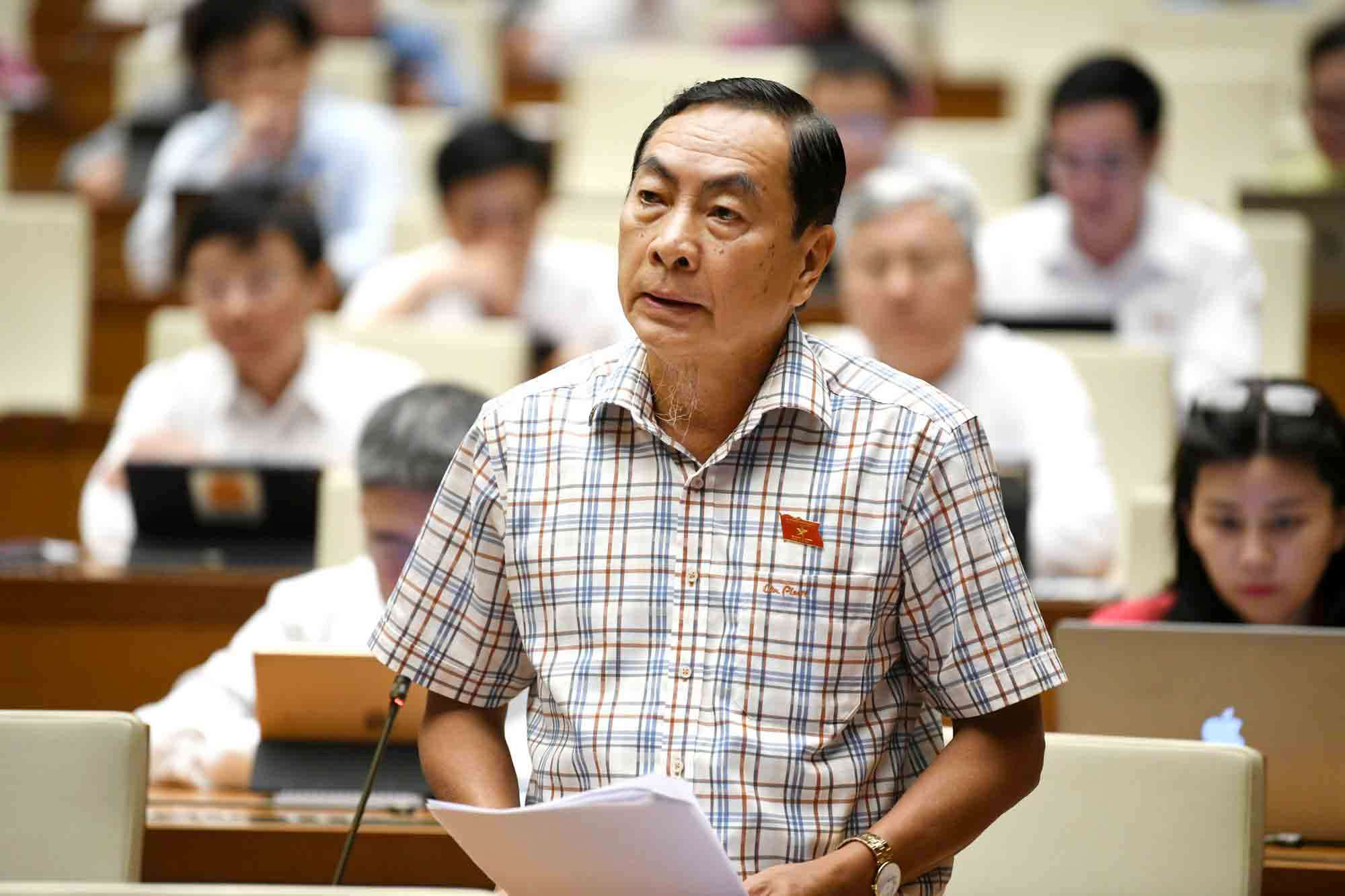
Delegate Pham Van Hoa (Dong Thap delegation)
Similarly, Deputy Nguyen Thi Viet Nga (Hai Duong delegation) also proposed choosing option 2, because this option will create conditions for businesses and investors to develop. Ms. Nga admitted that although this option may bring more risks to customers, it will be overcome by tightening management and increasing the responsibility of state agencies. On the contrary, option 1 will be safer for customers but at the same time, it will narrow the opportunities for businesses, seemingly going against the encouragement and creating mechanisms for businesses to develop.
Delegate Huynh Thi Phuc (Ba Ria-Vung Tau delegation) proposed to stipulate the deposit amount not exceeding 5% instead of 10% as in the draft. This amount is just enough for both the depositor and the depositee to maintain trust in each other, to be aware of their commitments, and at the same time ensure that the nature of the deposit is not for capital mobilization purposes.
Chairman of the Economic Committee Vu Hong Thanh said that both options have positive and negative aspects. With option 1, the positive aspect is that it can protect the interests of the weak party, the buyer, but on the business side, it is not possible to ensure access to potential investors. With option 2, the positive aspect is that it creates conditions for businesses, but from the basic design to the construction permit, there are many steps required and can be delayed, affecting the interests of the people. "If it is not clear or not agreed upon, we propose that this content be voted on so that the National Assembly can give its opinion," said Mr. Thanh.
Source link



![[Photo] Prime Minister Pham Minh Chinh chairs conference on anti-smuggling, trade fraud, and counterfeit goods](https://vphoto.vietnam.vn/thumb/1200x675/vietnam/resource/IMAGE/2025/5/14/6cd67667e99e4248b7d4f587fd21e37c)













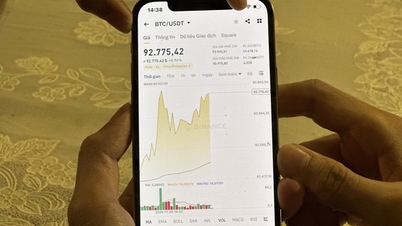



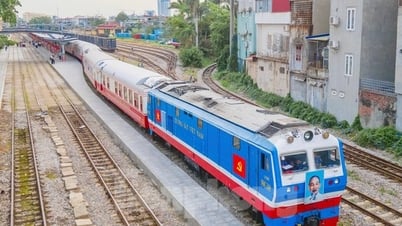

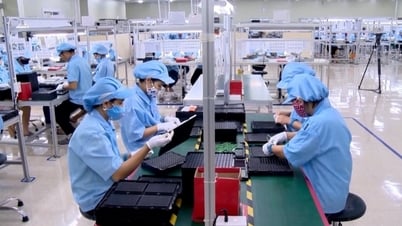







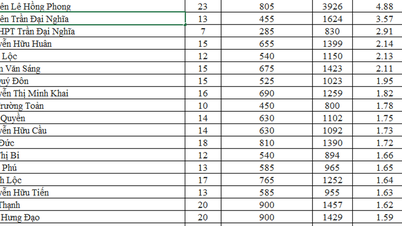





































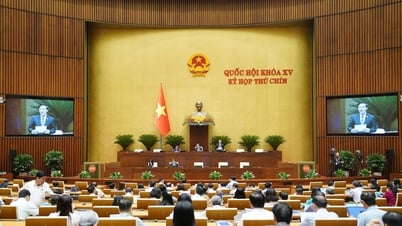







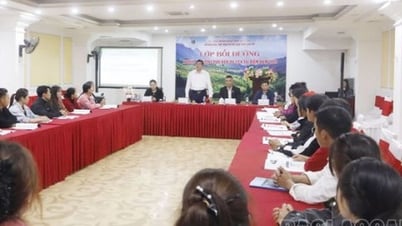
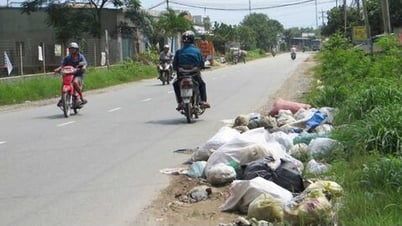

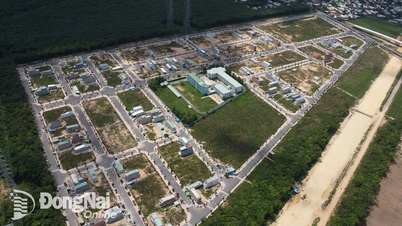




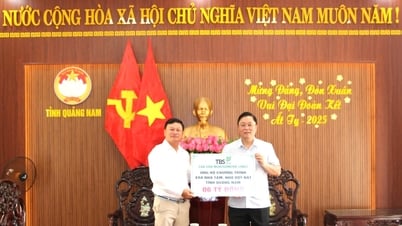










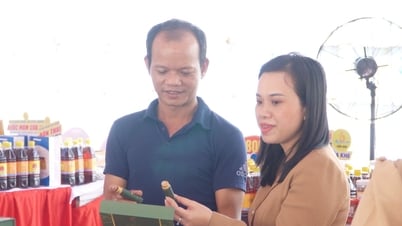
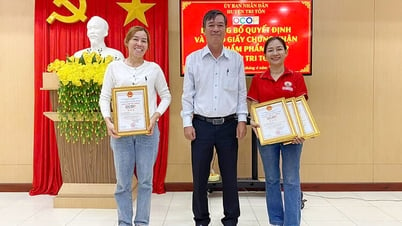
Comment (0)